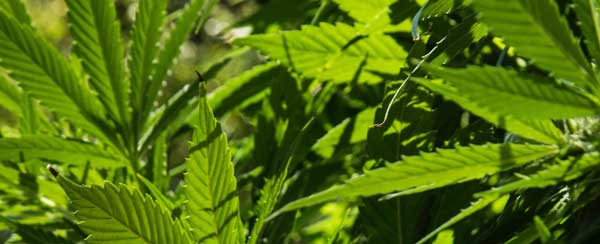CBD—a non-psychoactive compound extracted from cannabis—had been on the banned list under the umbrella of all cannabinoids since the list’s creation in 2004, due to WADA’s belief that cannabis can increase focus and risk-taking, and decrease anxiety and tension, resulting in better performance under pressure.
But changing cultural attitudes, loosening marijuana laws, and cannabis’ potential as a medicinal treatment have paved the way for a host of companies marketing CBD pills and creams toward the general pain-riddled public—including achy athletes. There is a wealth of anecdotal evidence touting CBD’s efficacy in reducing inflammation, improving insomnia, and speeding recovery. See: UFC fighter and sometimes-triathlete Nate Diaz’s post-fight press conference video clip extolling the virtues of CBD between pulls from a vaping pen. But right now, there’s scant scientific evidence that CBD, as it would be used over-the-counter, would have greater antioxidant or anti-inflammatory properties than, say, blueberries or dark chocolate.
“I have not seen any studies or research on CBD as an effective treatment for athletes,” says Dr. Pal Pacher, the senior investigator at the laboratory of cardiovascular physiology and tissue injury at the National Institute on Alcohol Abuse and Alcoholism. Much of the research to date on cannabinoids pertains to their effects on inflammation related to specific diseases, such as epilepsy and diabetes, and the organs they affect—an area of research that doesn’t necessarily lend itself to conjectures concerning exercise-induced muscle damage.
The several studies that have shown promise in CBD’s use in reducing oxidative stress and inflammation have, at this point, often been performed on animals or human cells rather than on humans. And those performed on humans have, again, focused on CBD’s effect on specific diseases, with treatment doses far higher than anything athletes will get OTC.
Dr. Pacher points out, however, that there’s also no research saying that CBD isn’t effective for treating sports-related inflammation—the research in athletes is just yet to be done. As marijuana and its related products become less stigmatized, expect to see more studies on issues affecting a greater amount of the public—like the general pain that leads millions of Americans to pop Tylenol. And, yes, athletic recovery.
For those interested, it’s important to note that CBD does not have any of the psychotropic effects of cannabis, meaning it won’t give users a “high”—one of the reasons WADA made it legal.
But there are still plenty of warnings to heed. As age-group athletes are subject to USAT testing, triathletes must be sure that what they’re taking doesn’t contain any THC (which is still banned). They must also note that, like all supplements in the U.S., over-the-counter CBD products are not FDA-approved, so there’s no guarantee—aside from what the brand claims—that the ingredients are what they say they are. That fact alone may make it not worth the risk for many athletes. There’s also the possibility for adverse interactions with whatever other supplements or drugs you may be taking. And then there’s the question of what type of CBD to look at: Some brands make their CBD from hemp, which some say isn’t as effective, while others make it from strains of cannabis bred for psychoactive effects.
Many of the CBD products available take the form of transdermal creams meant to alleviate local soreness and inflammation. A study analysis in the Journal of Pain Research found that topical CBD use can decrease pain in test animals with inflammation— though experts agree that because it happens in animals, doesn’t necessarily mean it’ll be helpful to humans. It’s also important to note that creams come in different concentrations and can be tough to apply in specific doses.
Then there’s the issue of legality: As of this writing, eight states and the District of Columbia have legalized recreational marijuana, while 30 states and D.C. allow its use for medicinal purposes. Non-THC CBD falls under the category of “industrial hemp,” so it should be considered legal in most places, but like with anything concerning marijuana, check your local laws carefully. Unfortunately, there’s no centralized spot to see what’s legal where, and since most CBD is bought online, buyers must proceed with caution. Vet sellers to be sure they’re trustworthy and not simply taking advantage of the CBD wave by selling snake oil.
The bottom line: The CBD industry is rapidly growing—but there are still a lot of unanswered questions regarding OTC use. Athletes interested in the stuff have to be comfortable being their own guinea pigs—and that’s a risk not everyone will be willing to take.
THC-Free CBD Products
We tried them. You’re welcome.
Floyd’s of Leadville
Former pro cyclist Floyd Landis’ brand makes a softgel ($60 for 30 25mg of CBD caps) we felt helped us have more restful sleep. Floyd’s also makes a tincture ($55 for 600mg, 30 servings), and a transdermal cream ($69 for 700mg).
Sagely Naturals
We liked this Santa Monica, California-based brand best. We tried their Recovery cream ($36 for 4 ounces, 50mg of CBD) and CBD/Turmeric capsules ($50 for 30 10mg of CBD caps). The capsules seemed to do a good job reducing overall feelings of inflammation, while the cream had a great scent.
Myaderm
This Englewood, Colorado company’s Transdermal CBD cream ($60 for 700mg of CBD in a 30-gram pump) had the highest concentration of the brands we tried, though Sagely’s cream seemed to work more quickly.
Source: triathlete.com


